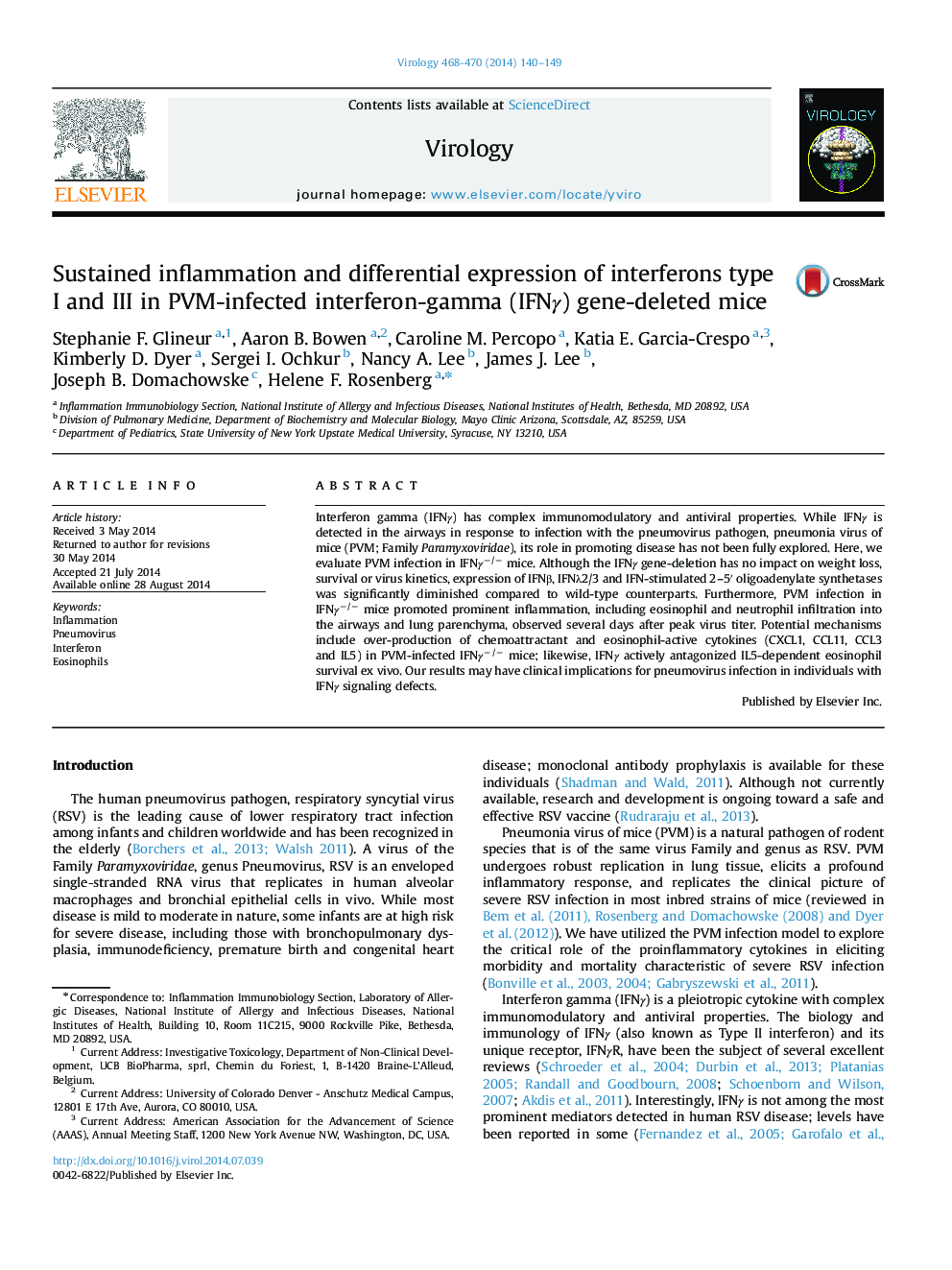| Article ID | Journal | Published Year | Pages | File Type |
|---|---|---|---|---|
| 6139786 | Virology | 2014 | 10 Pages |
â¢The role of IFNγ in acute pneumovirus disease has not been fully explored.â¢IFNγ gene-deletion had no impact on weight loss, survival or virus recovery.â¢Expression of IFNβ, IFNλ2/3 and ISGs was diminished in PVM-infected IFNγâ/â mice.â¢PVM infection in IFNγâ/â mice promoted airway inflammation post-peak virus titer.â¢These results may have implications for individuals with IFNγ signaling defects.
Interferon gamma (IFNγ) has complex immunomodulatory and antiviral properties. While IFNγ is detected in the airways in response to infection with the pneumovirus pathogen, pneumonia virus of mice (PVM; Family Paramyxoviridae), its role in promoting disease has not been fully explored. Here, we evaluate PVM infection in IFNγâ/â mice. Although the IFNγ gene-deletion has no impact on weight loss, survival or virus kinetics, expression of IFNβ, IFNλ2/3 and IFN-stimulated 2-5â² oligoadenylate synthetases was significantly diminished compared to wild-type counterparts. Furthermore, PVM infection in IFNγâ/â mice promoted prominent inflammation, including eosinophil and neutrophil infiltration into the airways and lung parenchyma, observed several days after peak virus titer. Potential mechanisms include over-production of chemoattractant and eosinophil-active cytokines (CXCL1, CCL11, CCL3 and IL5) in PVM-infected IFNγâ/â mice; likewise, IFNγ actively antagonized IL5-dependent eosinophil survival ex vivo. Our results may have clinical implications for pneumovirus infection in individuals with IFNγ signaling defects.
